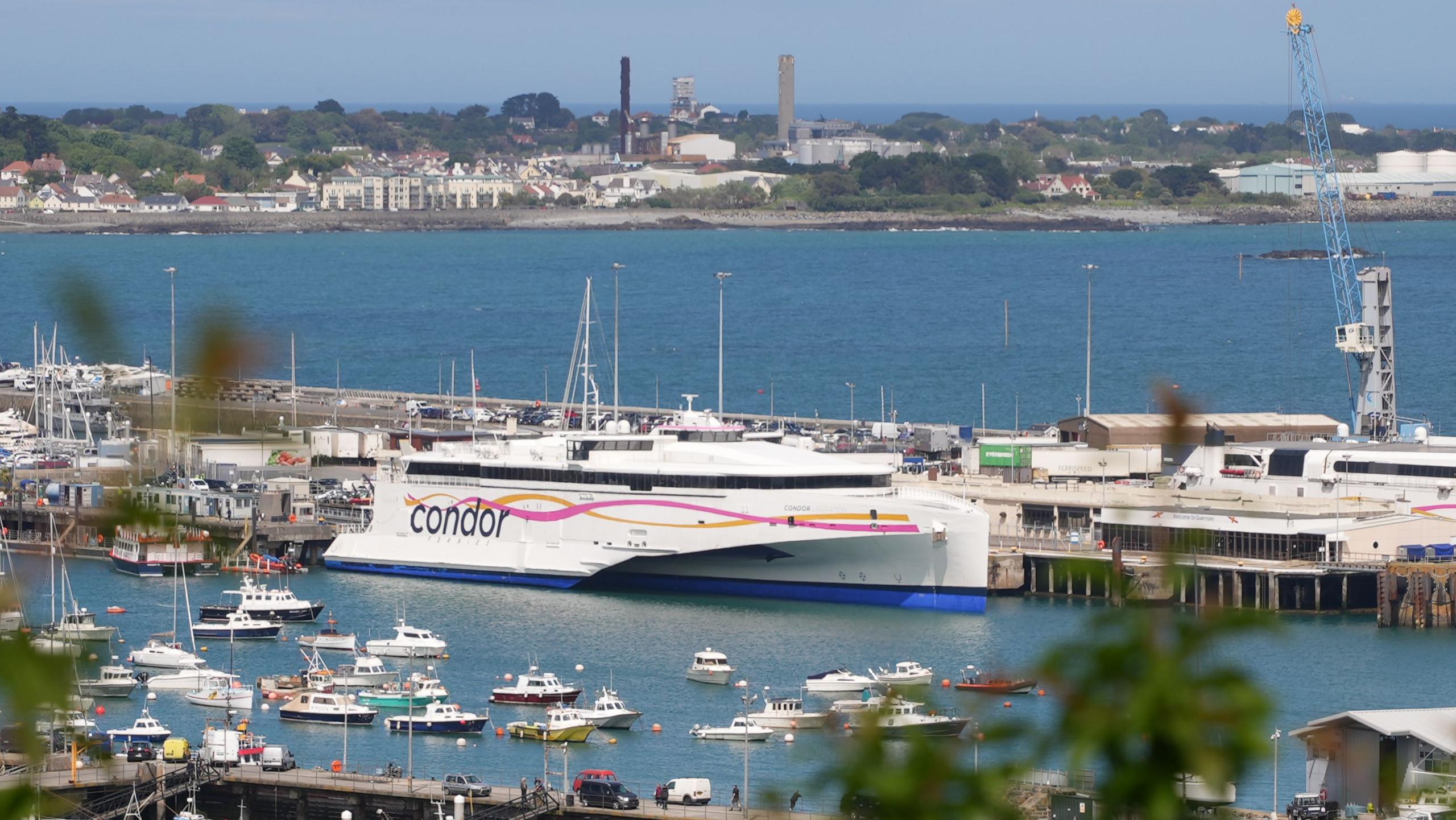Five things to know about ferry firm DFDS
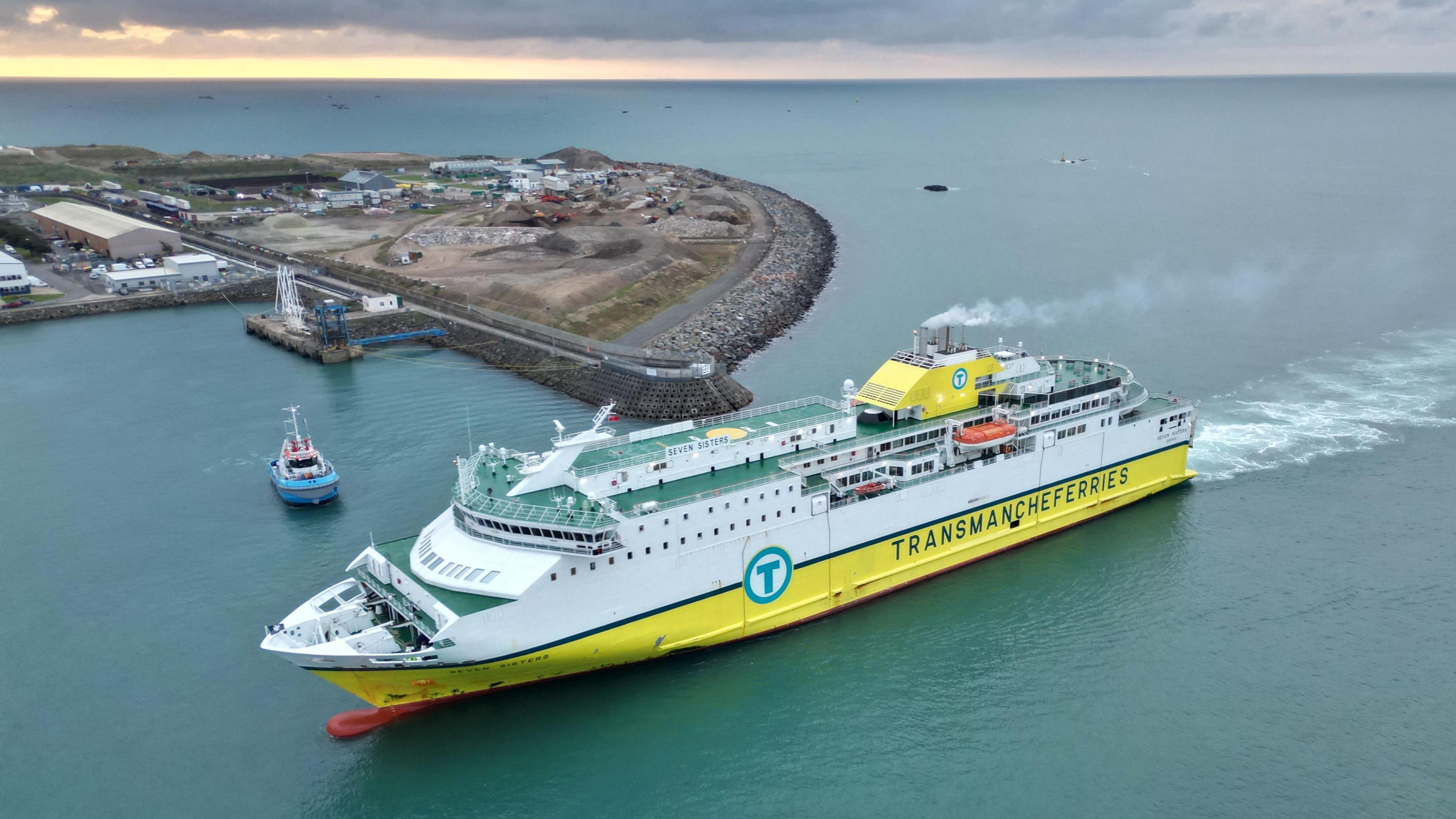
The Seven Sisters, operated by DFDS Seaways, carried out berthing trials in the islands in October
- Published
1) What is DFDS?
Danish firm DFDS has been chosen to run ferry services to and from Jersey for the next 15 years.
The firm had also tendered to run ferry services in Guernsey but the island instead chose Brittany Ferries.
DFDS was formed by the Danish financier Carl Frederik Tietgen in 1866, after the merger of three other firms.
The name is an acronym for Det Forenede Dampskibs-Selskab which in English means The United Steamship Company.
About 14,000 people work for DFDS, which has operations in more than 20 countries.
2) Which ships will they use?
DFDS has trialled three boats in the main harbours in both Guernsey and Jersey - St Peter Port and St Helier respectively.
The firm brought the Finlandia to the islands in December 2023.
The Seven Sisters, which is currently used between Newhaven on the south coast of England and Dieppe on the French coast, visited in early October.
At the time, a Ports of Jersey spokesperson said the vessel was "larger than the ferries Jersey normally accommodates" and a tug and two pilots were "used to ensure her safe berthing".
DFDS then tested the MV Mistral in the islands, which the firm has chartered until the end of the year, at the request of the governments of Jersey and Guernsey as part of contingency planning.
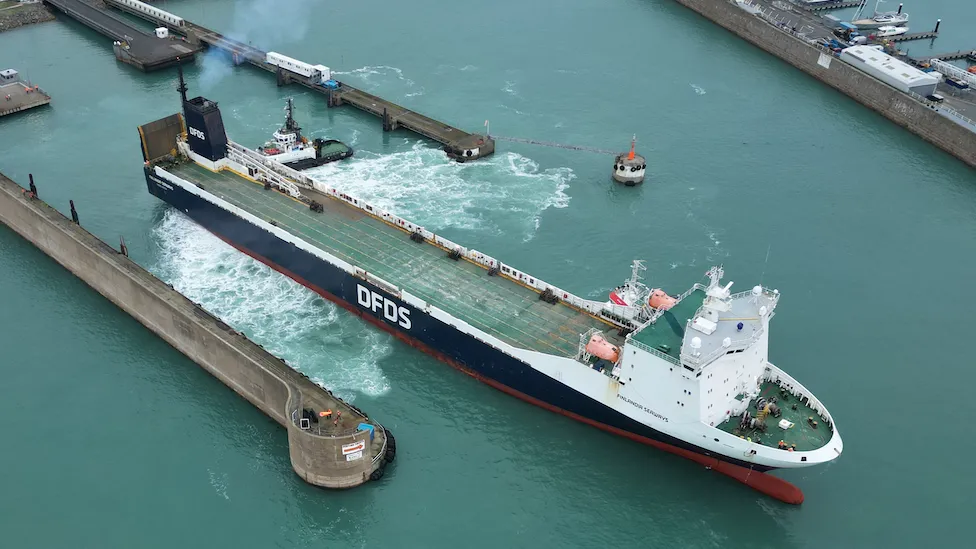
The Finlandia was the first DFDS vessel to be trialled in the islands
3) Where do they already operate?
Dozens of other routes are already run by DFDS in Europe.
They include destinations in the Baltics, Norway, Sweden and Holland, as well as France, England and Ireland.
Currently during peak travel times the firm said it could operate up to 30 crossings a day between Dover, on the south coast of England, and Calais in France.
Some of the DFDS boats that run between Copenhagen and Oslo have swimming pools and hot tubs on the outside deck.
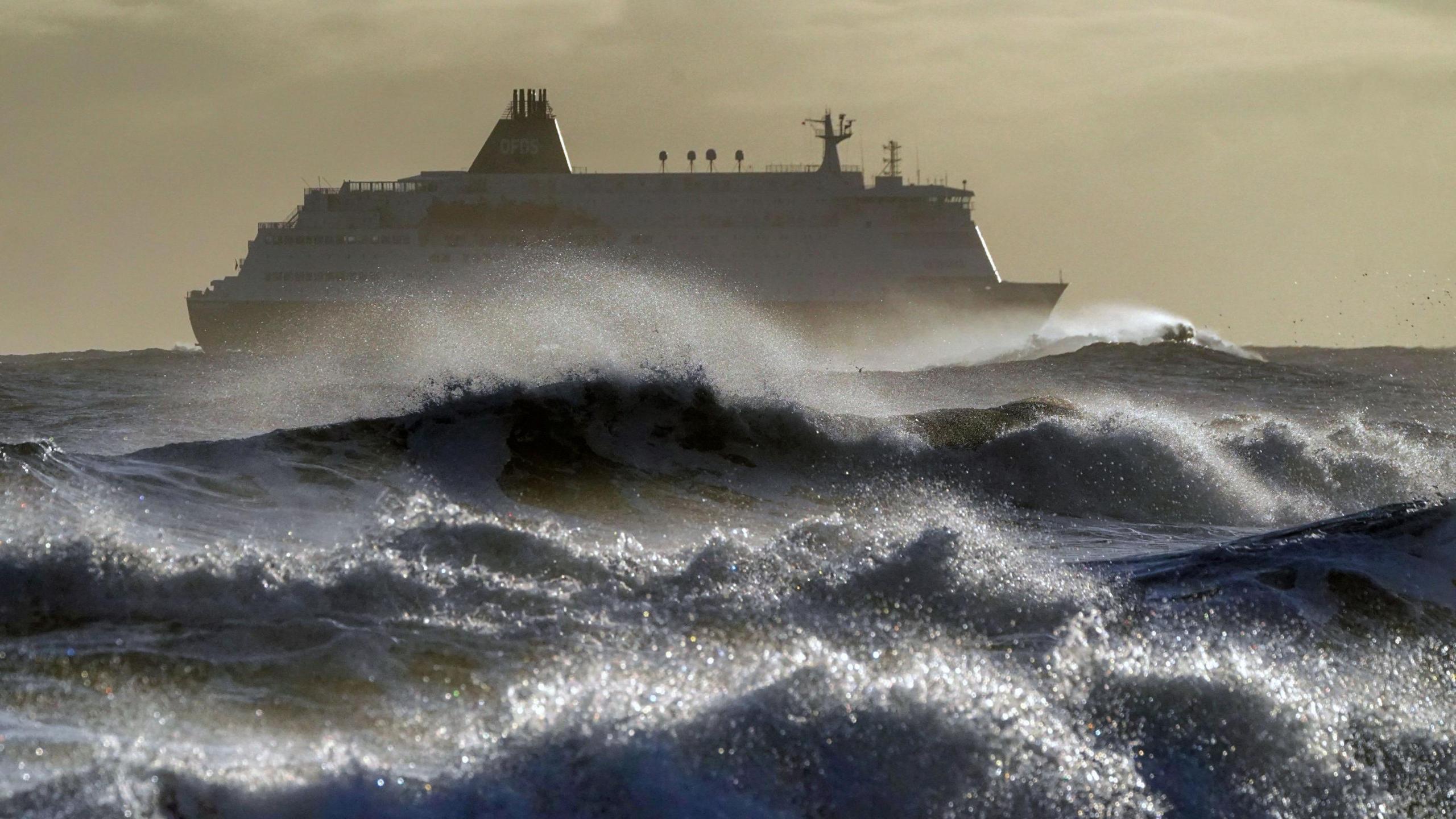
The Seven Sisters, a DFDS vessel that currently operates between Newhaven and Dieppe, has carried out berthing trials in St Peter Port and St Helier
4) What are its reviews like?
DFDS has been named the World's Leading Ferry Operator for more than 10 consecutive years at the World Travel Awards.
The awards are decided using votes from passengers and people working in the travel industry.
Reflecting on the award win in 2023, DFDS vice-president and head of passenger, Kasper Moos, said: "[The passengers] belief in our service inspires us to continually strive for excellence."
Passengers have left nearly 16,000 comments on the review website. Trustpilot, where DFDS has a 4.1 star rating.
Meanwhile, it has a 3.5 star rating from more than 300 reviews on Tripadvisor.
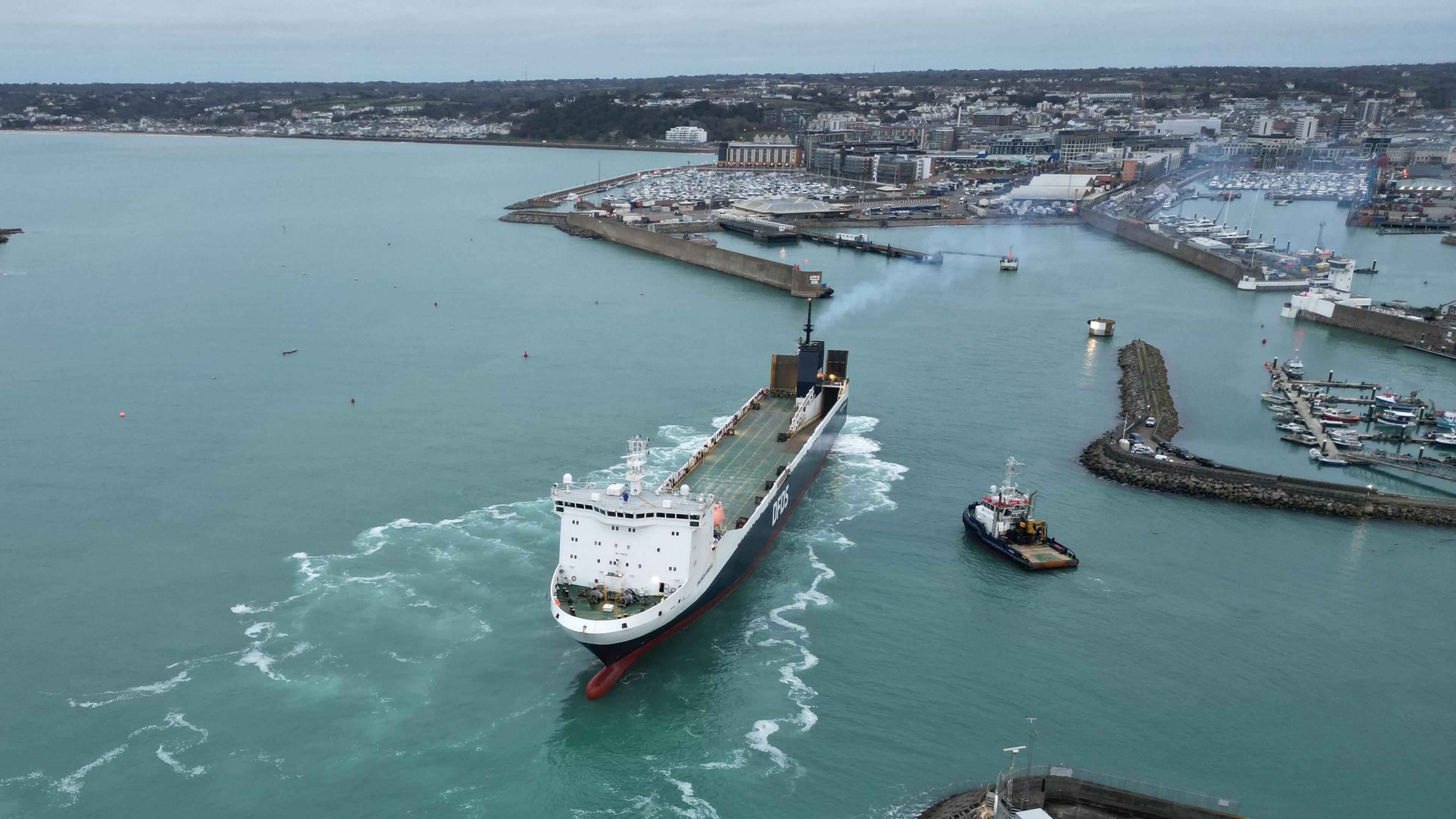
The Finlandia is 33m (108ft) longer than Condor's largest vessel, the Commodore Clipper
5) How green is the firm?
DFDS said upgrading its ferries was one of the key ways it hopes to meet its eco-targets.
In 2020 it announced plans to reduce the relative CO2 emissions of its ships by 45% by 2030, and become carbon neutral by 2050.
In April, it said it had agreed a deal with the Tasmanian company, Incat, which would work on designs for a hybrid boat for Channel crossings.
DFDS said the hybrid vessel could become fully electric once charging technology is fitted in ports.
Torben Carlsen, chief executive of DFDS, said the work is "the future".
"The hybrid electric ferry will be part of our vision for the future ferry solution for the Channel Islands," he said.
"Electrification of short sea routes is the future, and, with the design study, we can fast-track the green transition, ushering in a new era of low-emission maritime transport."
Follow BBC Guernsey on X (formerly Twitter), external and Facebook, external. Follow BBC Jersey on X (formerly Twitter), external and Facebook, external. Send your story ideas to channel.islands@bbc.co.uk, external.
Related topics
- Published15 October 2024
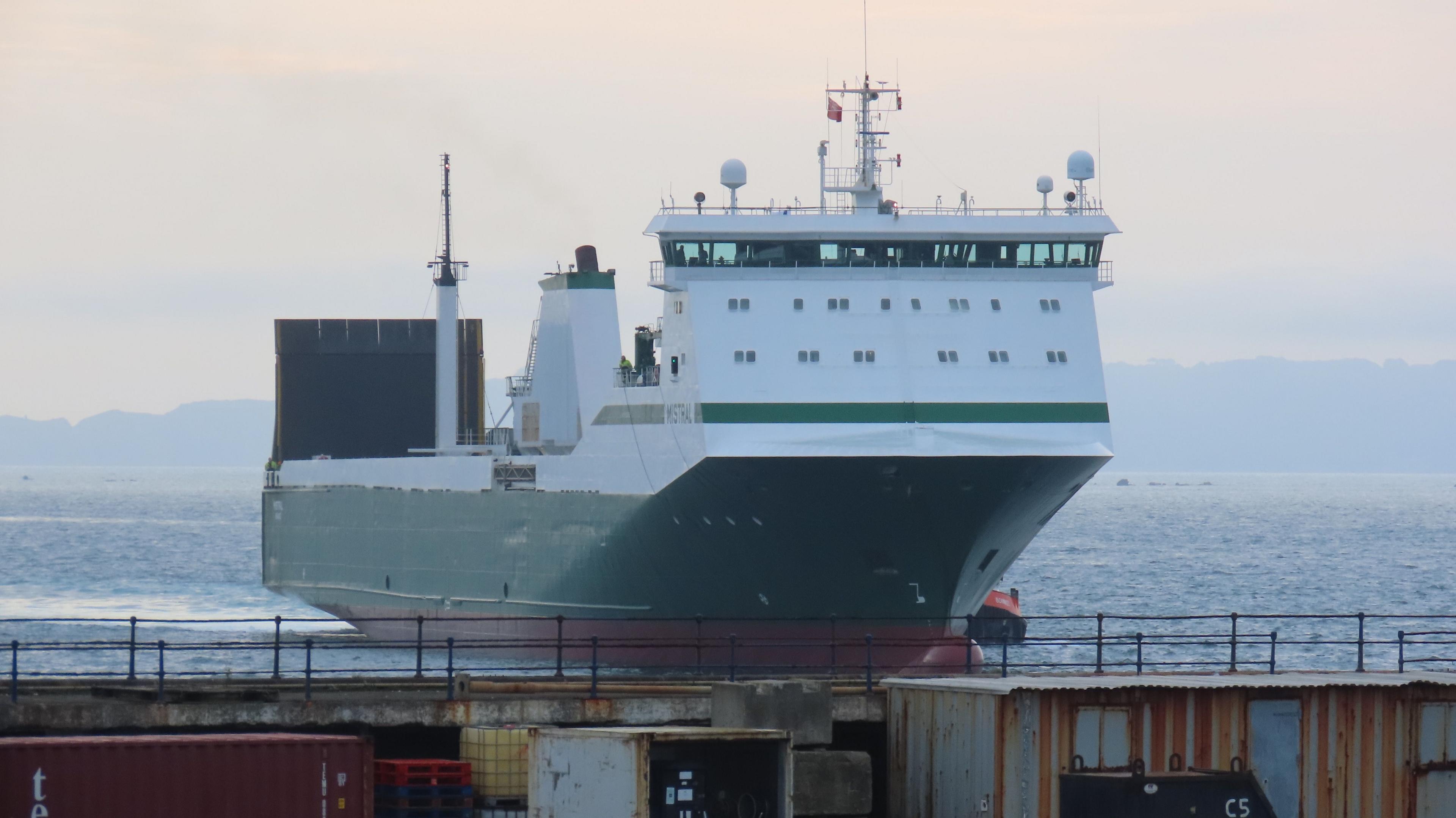
- Published3 October 2024
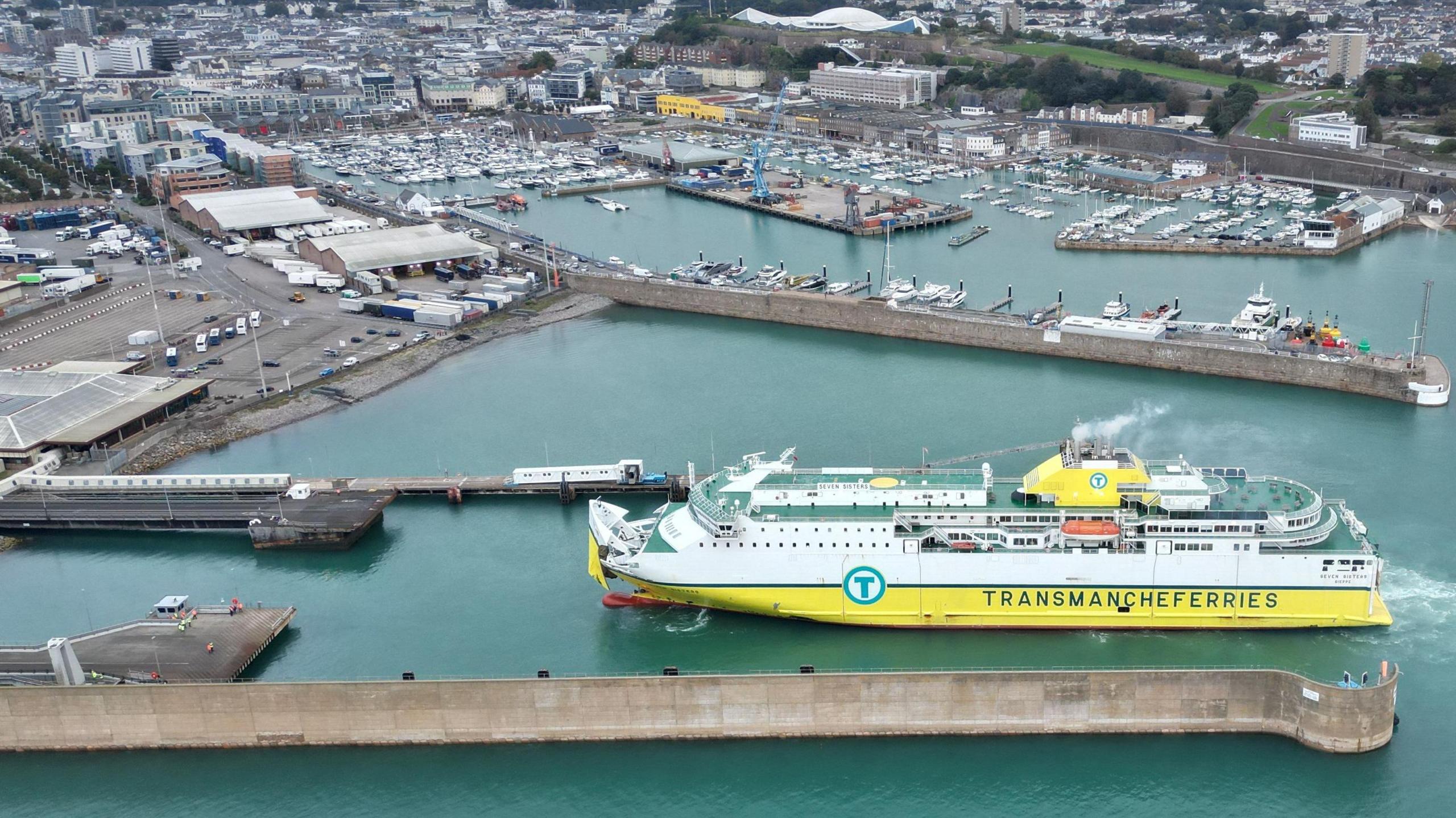
- Published25 September 2024
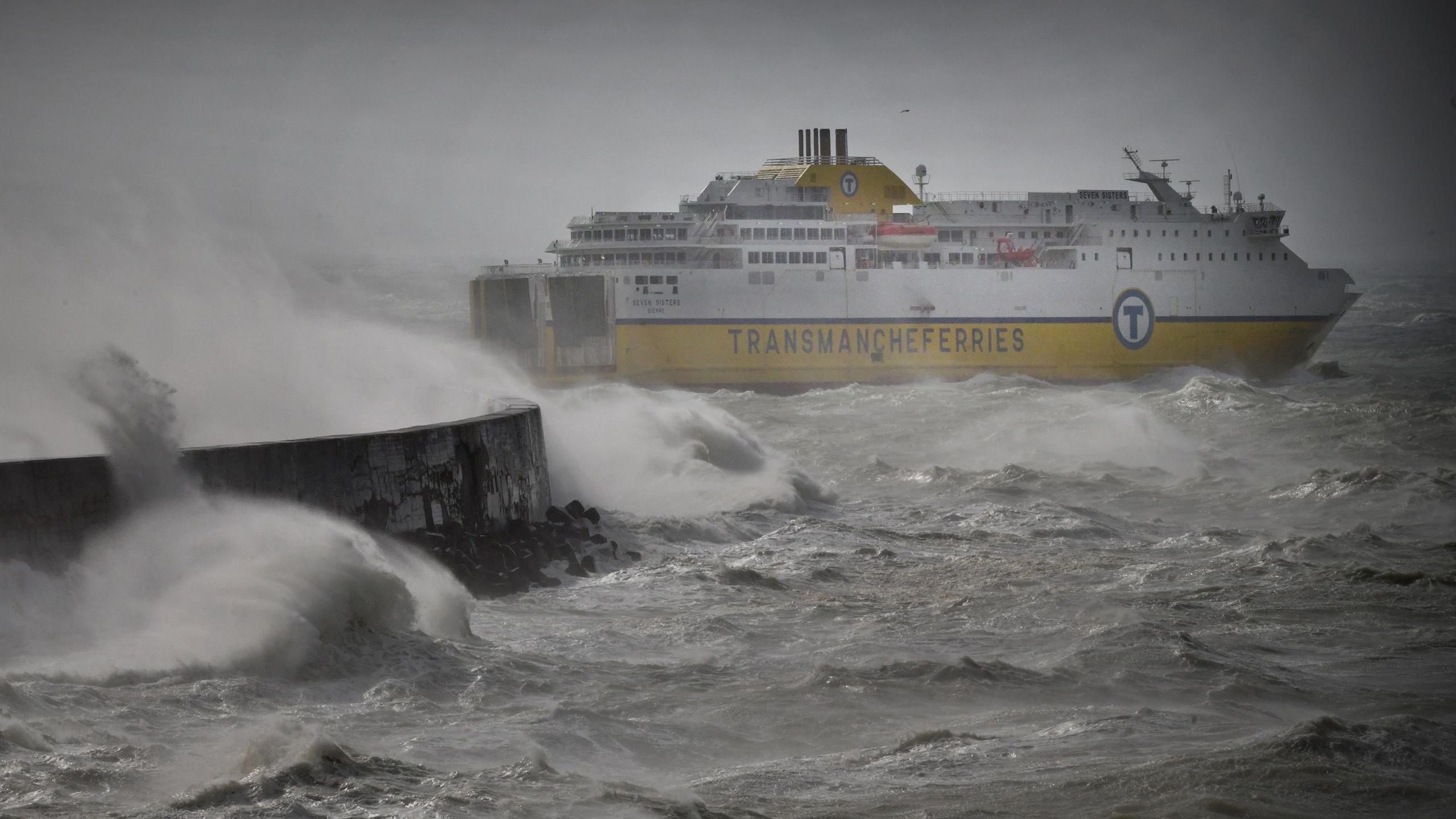
- Published11 September 2024
